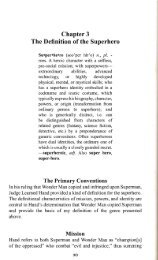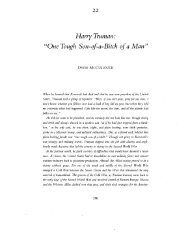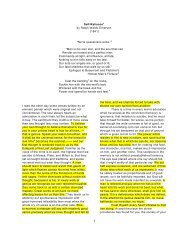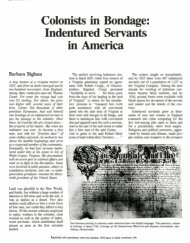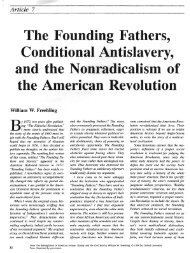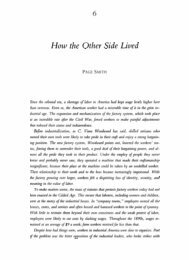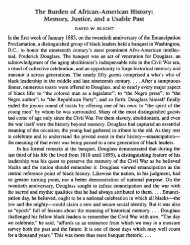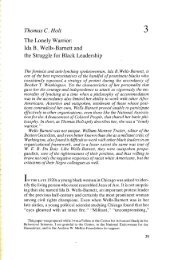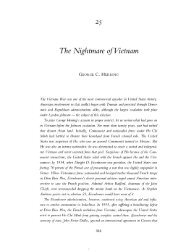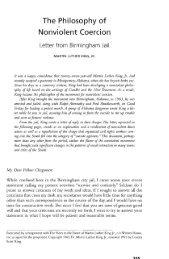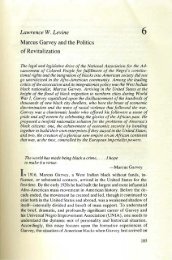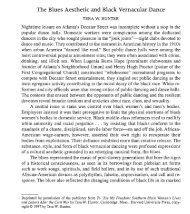Mary - Journeytohistory
Mary - Journeytohistory
Mary - Journeytohistory
You also want an ePaper? Increase the reach of your titles
YUMPU automatically turns print PDFs into web optimized ePapers that Google loves.
252 From Slavery to Freedomduring the war. Abolitionists, roused again to their crusade, demanded thatblacks be enfranchised and a harsher policy adopted toward the South. PracticalRepublicans, fearful of the political consequences of a South dominated byDemocrats, became convinced that black suffrage in the South would aid in thecontinued growth of the Republican party. Industrialists with an eye on marketsand cheap labor in the South were fearful that the old agrarian systemwould be resurrected by the Democrats. These groups began to pool their interestsin order to modify substantially the Johnson policy of Reconstruction.When Congress met in December 1865, it was determined to take chargeof Reconstruction. If there had been any doubt as to the direction in which theSouth was moving, it was dispelled by the character of the representatives sentto Congress. One had been vice president of the Confederacy, and there werefour Confederate generals, five Confederate colonels, six Confederate cabinetofficers, and fifty-eight members of the Confederate Congress. Although nonecould take the oath of office, their election indicated that the South stoodsolidly behind its defeated leaders. Thaddeus Stevens, a wily Republican leaderCongressionol and vigorous supporter of a stern policy toward the South, wasII slImption of exasperated. He proposed that Congress assume control of Recontrolo"erconstruction, asserting that the president's policy had been es-RCCOIlSlnlction sentially provisional. Congress adopted a Stevens resolutioncreating the Joint Committee on Reconstruction to inquire into the conditionof the Southern states and to make recommendations for a new policy.In two bills, one to strengthen the Freedmen's Bureau and extend its lifeand the other to guarantee civil rights to blacks, Congress sought to exercise itsinfluence in behalf of blacks. President Johnson vetoed the Freedmen's Bureaubill on the grounds that it was unconstitutional and proposed to do more forblacks than had ever been done for whites. The attempt to override the vetofailed. He likewise vetoed the civil rights bill and declared that blacks were notyet ready for the privileges and equalities of citizens. Johnson's veto of thesetwo bills, his condemnation of the proposed Fourteenth Amendment, and hisattack on Stevens, Sumner, and other Northern leaders, put Congress in anangry mood. Consequently, on April 9, 1866, it passed the civil rights bill overhis veto.The fight between the president and Congress was now out in the open.Both believed that they could muster enough strength to have their way. Johnsonwas so confident that he decided to carry the fight to the people and call onthem to return men to Congress in the fall of 1866 who would support his program.His conduct during the well-known "swing around the circle" was so unbecomingand his utterances so indiscreet that the entire country wasoutraged. He was soundly repudiated at the polls when the nation electedto Congress an overwhelming majority to oppose him and his Reconstructionprogram.The rejection of the Fourteenth Amendment by the Southern states, theirenactment of Black Codes, the Widespread disorder in the South, and PresidentJohnson's growing obstinacy persuaded many people that the South had to be



